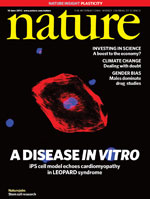|
Phase 2 Results of the Autism Genome Project have recently been Published in the journal, Nature. The Autism Genome Project (AGP) (www.autismgenome.org) is an international autism genetics research consortium co-funded by Autism Speaks, the Medical Research Council, Canadian Institutes of Health Research, Health Research Board (Ireland), Genome Canada, the Hilibrand Foundation and Autistica. They have been looking at genotyping data collected from 1,000 individuals with autism spectrum disorder (ASD) and 1,300 without ASD, and have reported that individuals with autism tend to carry more submicroscopic insertions and deletions called copy number variants (CNV) in their genome than controls, some of which appeared to be inherited, where others are new (were not found in parents) New genes were identified, some of which are related to connection in the brain (synapses) and others to the numbers and use of cell structures in the brain, and connections between cells; areas which could possibly affect future treatment approaches. Each variant may only account for a small fraction of the cases, but together, they are starting to account for a greater percentage of individuals in the autism community. The overlap between autism susceptibility genes and genes previously implicated in intellectual disabilities further supports the hypothesis that at least some genetic risk factors are shared by different psychiatric developmental disabilities. Finally, identification of these biological pathways points to new avenues of scientific investigation, as well as potential targets for the development of new treatments. Andy Shih, Ph.D., Autism Speaks vice president for scientific affairs, explains that “Piece by piece, we are discovering genetic mutations that can cause autism. These findings will provide answers for families about what contributed to their autism. Furthermore, as we have learned from examples involving other genetic risk factors of autism (e.g., Fragile X, Rett, TSC), these genetic findings help us understand the underlying biology of autism, which can lead to the development of novel treatments.” For a copy of the direct article, please visit the following link: http://www.nature.com/nature/journal/vaop/ncurrent/pdf/nature09146.pdf The AGP consists of 120 scientists from more than 60 institutions representing 11 countries who formed a first-of-its-kind autism genetics consortium. The AGP began in 2002 when researchers from around the world decided to come together and share their samples, data, and expertise to facilitate the identification of autism susceptibility genes. This continuing collaboration and its unique scientific assets (e.g., large sample set and multidisciplinary expertise) created scientific opportunities that otherwise would not exist. The AGP is well positioned to build on these extraordinary assets as the field of autism genetics further investigates rare variants, requiring larger sample sets to identify more CNV. Additional support for Phase 2 of the AGP was provided by the National Institutes of Health. The first phase of the AGP, the assembly of the largest-ever autism DNA collection and whole genome linkage scan, was funded by Autism Speaks and the National Institutes of Health and completed in 2007. Casey Burgess, 2010
1 Comment
|
AuthorCasey Burgess has a B.Sc.in Psychology, an M.A. in Education (Curriculum and Instruction), and a Ph.D. in progress in Education (Cognition and Learning). She has 20 years experience with direct service, curriculum development, workshop facilitation, and supervisory experience supporting children who have Autism Spectrum Disorders, and their families. She currently frames her work using a developmental, relationship-based, self-regulation lens. Archives
June 2021
Categories |

 RSS Feed
RSS Feed